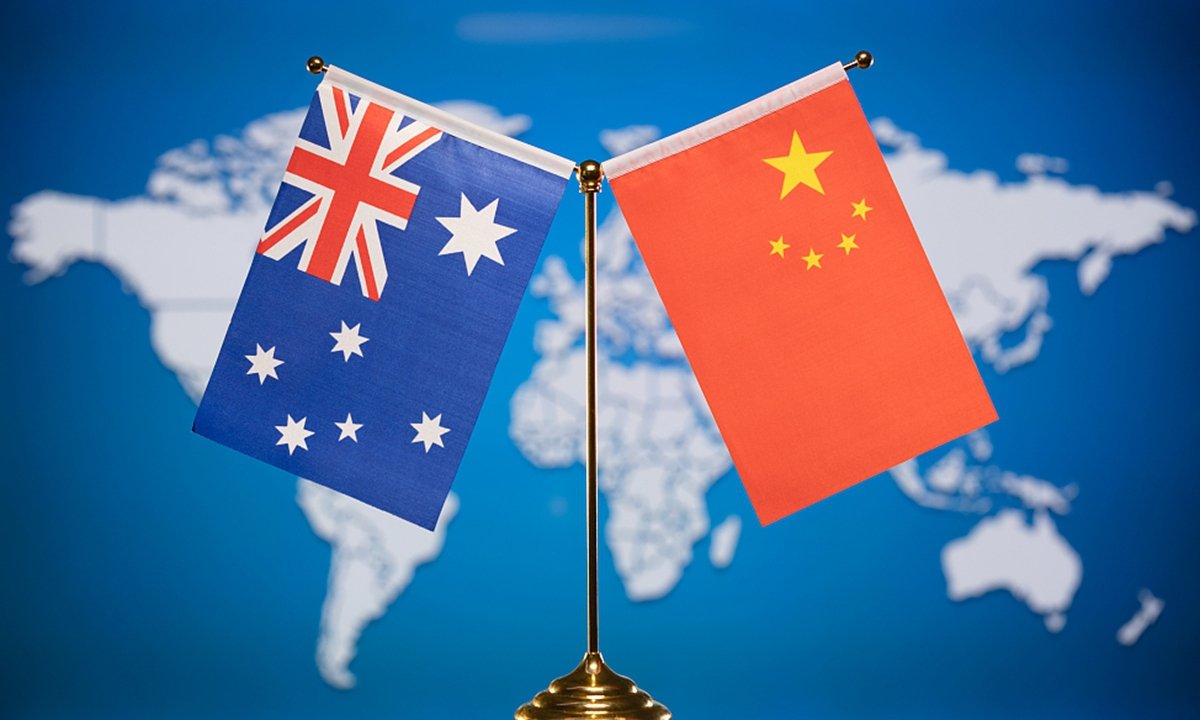In a long-awaited move, a high-level Australian delegation comprised of representatives from diverse sectors, including industry, government, academia, and media, is set to embark on a pivotal journey to Beijing for an anticipated bilateral dialogue with their Chinese counterparts. This landmark dialogue, scheduled for Thursday, marks the first such meeting since early 2020 and comes at a time when both nations are seeking to mend strained ties.
The delegation’s composition, featuring former ministers from Australia’s Labor and Liberal parties, underscores the nation’s bipartisan commitment to enhancing economic, trade relations, and people-to-people exchanges with China. This cooperative approach is seen as a crucial step toward addressing misunderstandings and discovering common ground.
“This is the first time the dialogue has been held since early 2020, and it represents another step towards increasing bilateral engagement and stabilizing our relationship with China,” emphasized Australian Minister of Foreign Affairs, Penny Wong, in a media release from her office.
The media release officially announced the 7th Australia-China High-Level Dialogue, scheduled for September 7 in Beijing. This platform will bring together senior representatives from various domains, fostering an exchange of perspectives on the broad spectrum of Australia-China bilateral relations.
The dialogue promises to be a fertile ground for constructive discussions spanning topics such as trade and investment, people-to-people connections, and regional and international security, as per the media release.
Leading the Australian delegation as co-chair is former Trade Minister Craig Emerson. Additionally, former Minister for Foreign Affairs, Julie Bishop, will participate as a delegate and session lead, demonstrating the cross-party support for the dialogue.
On the Chinese side, Li Zhaoxing, former Minister of Foreign Affairs and honorary president of the Chinese People’s Institute of Foreign Affairs, will co-chair and head the Chinese delegation, as revealed in the media release.
The backdrop for this momentous Australian delegation’s journey stems from recent high-level political and military interactions between China and the United States. Reports suggest that U.S. President Joe Biden is scheduled to engage with Chinese leaders, prompting Australia to recalibrate its policies towards China, as explained by Yu Lei, Chief Research Fellow at the Research Center for Pacific Island Countries of Liaocheng University.
Tensions between these two major trading partners escalated in 2020 when the former Australian Liberal administration adopted a hawkish anti-China stance and called for an investigation into the origins of the COVID-19 pandemic. However, with the Labor administration taking office in May 2022 and China subsequently lifting tariffs on Australian barley exports in August, bilateral ties have begun to show signs of improvement.
Nevertheless, numerous misunderstandings persist in various fields, potentially leading to policy missteps. It is precisely for this reason that this dialogue is deemed essential in finding amicable solutions to contentious issues, according to Chen Hong, President of the Chinese Association of Australian Studies and Director of the Australian Studies Center at East China Normal University.
As a cornerstone and catalyst of China-Australia relations, improved economic and trade relations are anticipated to usher in a new era of cooperation. Yu Lei emphasized the urgency of enhancing economic and trade ties for Australia, given its economic challenges, high prices, and eagerness to access the Chinese market and goods. Specifically, Australia aims to collaborate with China in the domains of new energy and new materials.
Yu further noted that the delegation’s visit also aims to bolster people-to-people exchanges. The deterioration in bilateral relations in recent years has led to a decline in Chinese favorability toward Australia, resulting in reduced Chinese tourism and international student enrollment in Australia. This, in turn, has had adverse effects on Australian businesses and universities.
However, on the security front, Australia seeks to maintain alignment with the United States and preserve the status quo concerning China’s stance on the Taiwan issue and the South China Sea, Yu added.
Echoing this sentiment, Chen highlighted Australia’s role in the U.S. “Indo-Pacific Strategy” and its alignment with U.S. positions on China policy. Any changes in China-Australia relations are expected to be influenced by the strategic alliance between Australia and the United States.
Nonetheless, Chen emphasized that China must acknowledge that Australia is not willing to become a mere tool or weapon in the U.S. quest for hegemony, and Australia is steadfast in protecting its own national interests.
The future direction of China-Australia relations remains uncertain, contingent on the political wisdom and strategic vision of Australian policymakers. Chen cautiously expressed optimism regarding the trajectory of these bilateral ties, underscoring the complex dynamics at play.
Read More:
